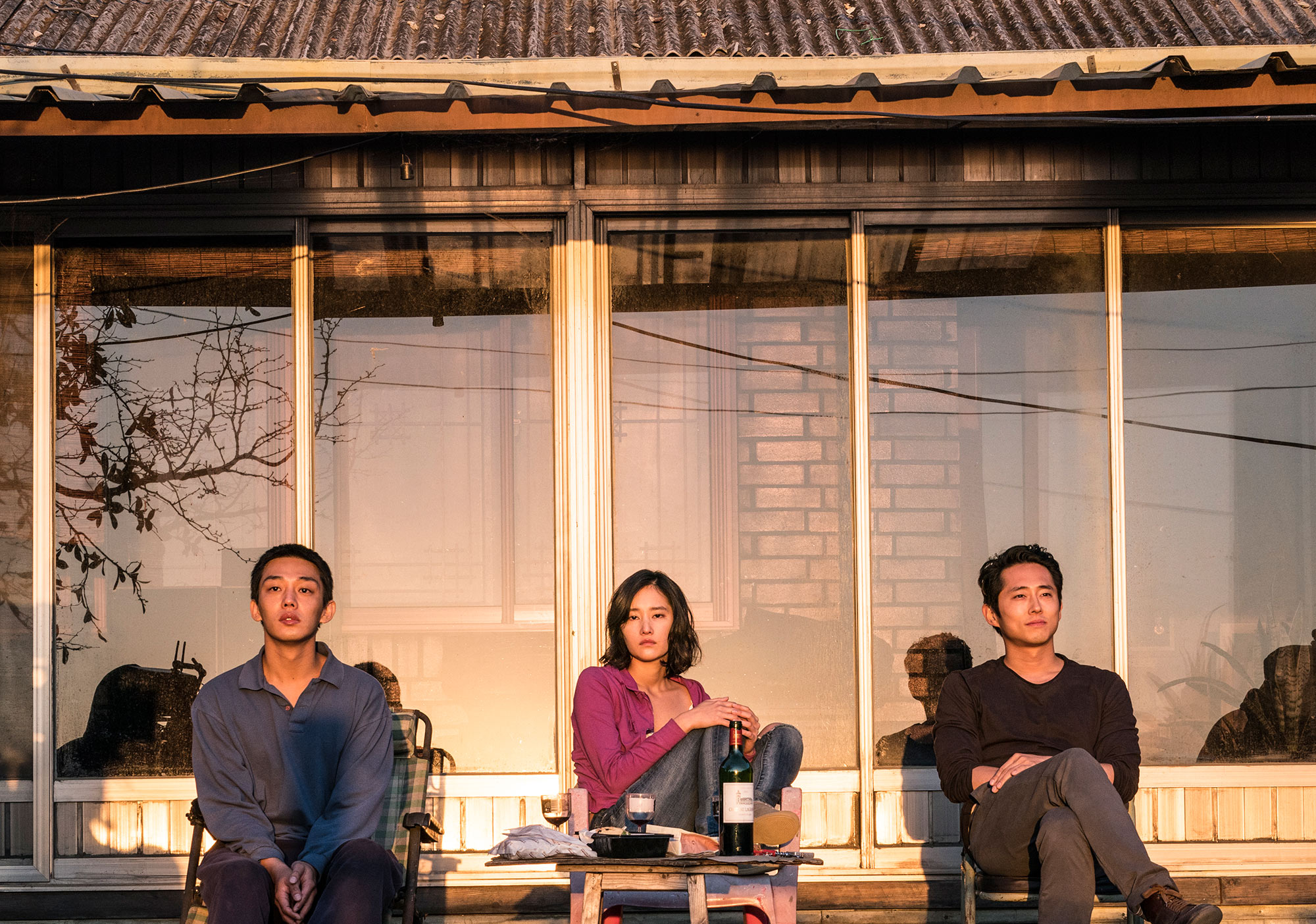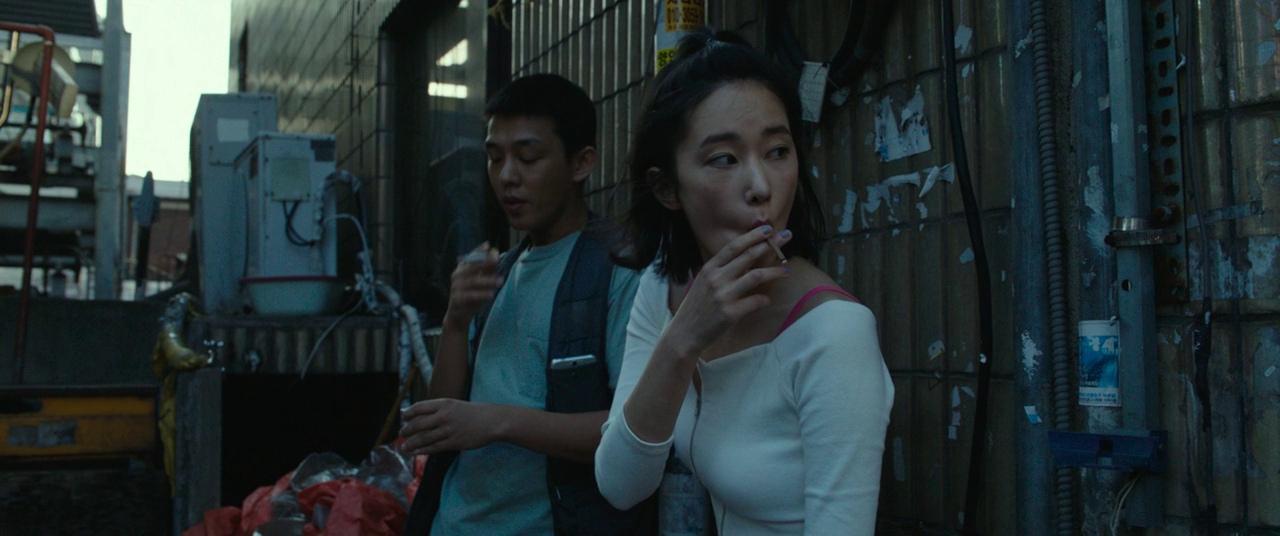During a 2019 trip to LA, I finally had the unique experience of attending a film screening with the director present for a live Q&A afterwards. As someone who makes a habit of watching implicit, purposefully enigmatic movies and then scouring the internet immediately after for answers, being able to hear first-hand from the director of such a film made for an awesome experience. As is also often the case, I learned that I had completely missed the point of the movie, but it was nice to have been told that definitively mere minutes after watching the film and through no additional effort.
The movie in question is Lee Chang-dong’s Burning. The story follows Jong-su, a young, unpublished writer, living an embattled life in Seoul. Throughout the film, he learns his dad has encountered more legal trouble and drives out to the countryside to maintain the farm in his father’s absence. As the film tracks Jong-su’s goings between Seoul and a rural town right near the DMZ, we get to see some truly gorgeous cinematography and incredible acting by the leads in what is clearly a commentary on wealth inequality in Korea. That much I got without having to hear from the director.

| Jong-su (Yoo Ah-in), Hae-mi (Jeon Jong-seo), and Ben (Steven Yeun) in Burning (Well Go USA)
The actual driving force of the film, however, is the main character’s chance encounter with Hae-mi, a childhood friend he had not seen in many years. After a funny, awkward exchange and catch-up over a smoke, they proceed to smash in her cramped apartment in the city, and afterwards, Hae-mi asks Jong-su to feed her cat while she vacations in Africa. Since Jong-su reads into their hookup much more than she does, he is shocked to see Hae-mi cozying up to another man she apparently met on her trip, when he later goes to pick her up from the airport upon her return. Jong-su spends the rest of the film hanging out with Hae-mi and this new mysterious man, Ben. As he gets to know Ben more, Jong-su becomes increasingly paranoid of this man he already started off wary of. Then, when Hae-mi mysteriously disappears halfway through the film, Jong-su truly begins to spiral, again reading into small events with growing certainty of Ben’s maliciousness.
Now, the thing I completely missed when watching this the first time was Lee Chang-dong’s intention with the on-screen portrayal of Ben and Hae-mi (and in particular, Ben). As I watched the film, I empathized most with Jong-su and thought for sure Hae-mi was the unfortunate love interest, while Ben’s character was meant to be a psychopathic serial killer that just claimed Hae-mi as his most recent victim. In my defense, Steven Yeun’s performance in the Ben role was incredible, acting out a character that never displays any emotion (even claiming at one point he has never cried in his life), makes insane remarks about his unusual hobby of burning down greenhouses, and charmingly walks through life as an unoccupied playboy living in the wealthy Gangnam district in Seoul.
“How does he live like that at his age? Traveling abroad, driving a Porshe, listening to music while cooking pasta … He’s the Great Gatsby. Mysterious people who are young and rich, but you don’t know what they really do. There are so many Gatsbys in Korea.”
My second defense is just how powerfully the final act plays out on screen. During the climax, the director cuts way from Jong-su’s perspective for the first time in the movie and we watch Ben (in a fairly psychotic manner, in my opnion) apply makeup on his next casual relationship (victim). After this brief scene away from Jong-su, we see Ben’s Porshe pull up to a secluded area where Jong-su is waiting. As he exits the car, Ben is immediately stabbed and killed by Jong-su, departing the film with a wry smile. As the credits roll shortly after, I think to myself what a beautifully shot movie about a serial killer I just watched. Unfortunately, I learn this is not at all what happened in the movie.
As the Q&A happens, I start to learn what the director really intended for the message and takeaway to be. It turns out Lee Chang-dong did not want to portray Ben as a clear psychopath at all, but rather a purposefully ambiguous man who could be a killer, …but could also just be a ladies man and utter troll otherwise. The real point of the film, as the director himself states, is to show how ambiguous the actual reality we live in has become. Even his early portrayal of today’s hookup culture with unverbalized feelings and unspoken intentions adds to this commentary. In Burning, Lee Chang-dong wants to paint a picture of how modern life forces people to become ever more isolated, and how the general unease that comes with this isolation can drive people to the most dramatic possible conclusions. When I think about the film in this context, things start to make much more sense. At no point was there clear evidence of either Ben’s genuine malice nor troll act. We never see him hurt anyone, we never see him burn down a greenhouse, and we never really see his side of things, period. This had occurred to me while watching the film, but I had thought the director’s decision to include a single scene from Ben’s perspective was proof enough of his serial killer vibes. Thinking back, the only thing the Ben scene showed was him hanging out with another woman - one who was clearly alive and consenting to having her makeup applied by a guy she barely knows (but to each their own).

| Jong-su and Hae-mi before all the unfortunateness (Well Go USA)
When I rewatched this film in 2021, as mysterious as Ben is, Hae-mi is equally mysterious and even more emblematic of this idea, in my view. Even with less screen-time than the other two, Hae-mi personifies unkowability at every turn. At the start, we immediately figure out Jong-su tragically cannot get a read on her. After she disappears, we learn that her family doesn’t even seem to know her. And while watching her talk about her trip and search for the meaning of life, we realize that perhaps she doesn’t even know herself.
In this light, Burning is a masterpiece of a film with incredible meaning alongside its equally powerful cinematography, score, and acting. The world is more technologically advanced and wealthier than ever. But Lee Chang-dong seems to believe the cost of that to be the average person’s ability to live in such a world, when faced with such strong epistemic uncertainty. If we look at society today, it does seem more difficult to form meaningful relationships and know people, including yourself. People seem less trusting, perhaps, but technology and social media has made it both easy and seemingly necessary to obfuscate yourself behind digital walls and other facades.
Anyways, I don’t have an answer for any of this, but the point is, Burning is an amazing film and I highly recommend it. Also, it was really cool to hear from Lee Chang-dong right after watching his movie, and I really hope cinemas find a way to survive this pandemic so we can continue having that kind of experience. Finally, I will conclude by saying Burning not even being nominated for an Oscar is the greatest snub in the history of the Academy. So please go watch this film and tell your friends about it too.